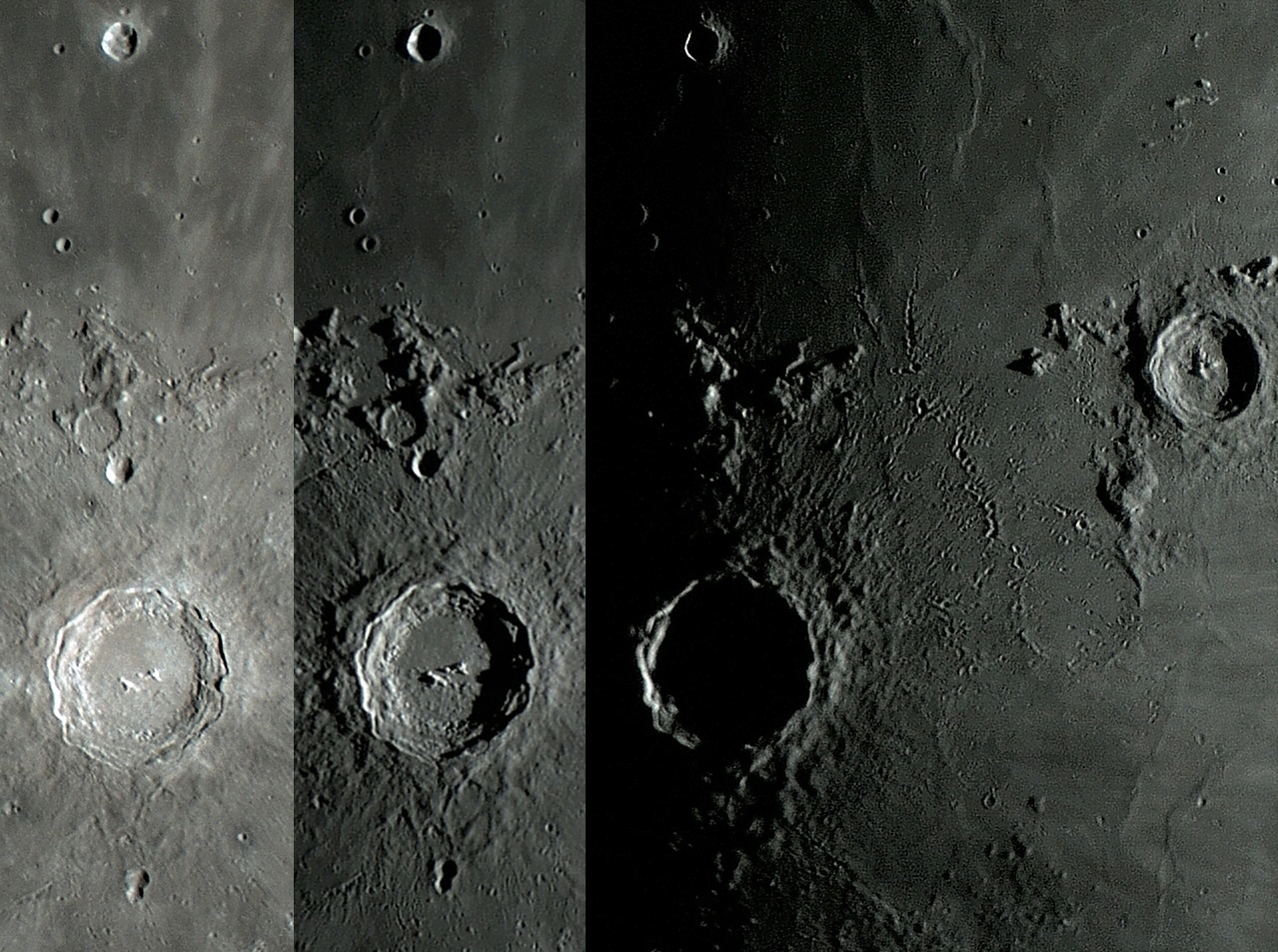April 6, 2014
And Yet It Moves

image by Prof. Ricardo José Vaz Tolentino in Brazil.
Despite containing the same features observed by renowned scientist Galileo Galilei more than 400 years ago, our natural satellite always presents differentiated and surprising forms through the eyepiece. In the observation sessions of the Moon, even experienced observers continue to find different aspects of the features present in its surface. This is due to the continuous variation of incidence angle of sunlight, caused by the movements of the Moon, which constantly create dynamic changes of light and shadows over the rich lunar relief, which always shows novelties in visual aspect. This angular variation of sunlight along with the assortments of targets on the surface of the Moon (craters , mountains , scarp , etc.) provide optical changes in every moment . This dynamic scenario translates in advantage against the routine and monotony in telescopic observations, because the Moon does not precisely repeat the same aspects or appearances of their features, providing always new and interesting configurations for the observer.
Ricardo José Vaz Tolentino
Technical Details
Sky-Watcher Collapsible Truss-Tube DOB 12" + Celestron Ultima 2X Barlow + Orion StarShoot Solar System Color Imager III Camera (photos with just 1 frame each).
Date and Time:
Left to right: May 2012, 31; 22:00:02 (01:00:02 UT); June 2012, 28; 20:50:20 (23:50:20 UT) and May 29, 2012; 20:10:10 (23:10:10 UT).
Related Links
Ricardo's Website: www.vaztolentino.com.br
21st Century Atlas chart 17&22.
Yesterday's LPOD: From Sea To Shining Sea
Tomorrow's LPOD: Moon Last Night
COMMENTS?
Register, Log in, and join in the comments.



